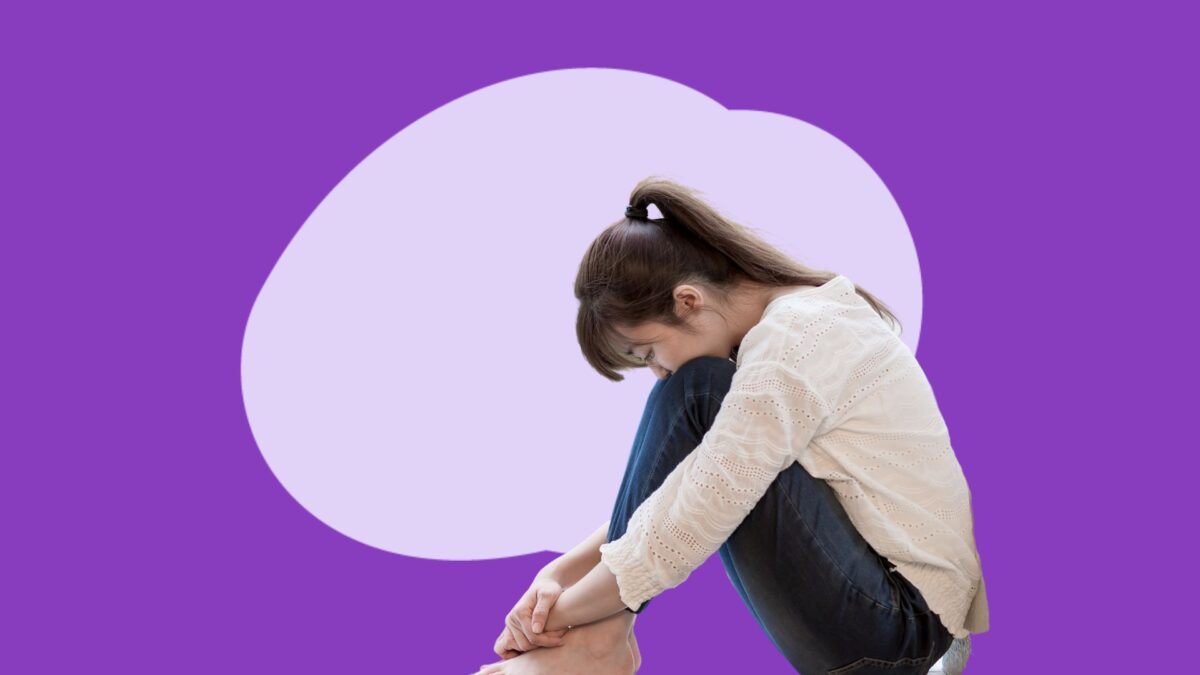You’re insecure… Don’t know what for! Ohhh we’ll tell you why, One Direction. For every compliment we get on a job well done, our favourite outfit, or how nice our smile is, there’s a million negative thoughts about ourselves lingering in the back of our minds. These thoughts could be caused by a (totally uncalled for) comment someone has made, like: “Huh, I never noticed how weird your run is! It’s like you have T-Rex arms.” Gee, thaaanks. Didn’t know I needed to be feeling insecure today but thanks, seriously.
Or when you told your parents how you wanted to launch your own business, they said something like: “Are you sure you can handle that?” Okay, ouch. Maybe it just comes down to the insecurities you’ve developed over time from yearsss of negative self talk that’s been holding you back for so long.
Look, everyone feels insecure. Our inner critic will give us a list of 1000+ reasons why we don’t measure up. We might tell ourselves we’re not smart enough to pursue a Master’s degree, even though it’s a field we’re really passionate about learning. Maybe we compare how we look to our idols and feel like shit for not looking exactly like them. Or we convince ourselves we’ll never be athletic enough to run a full marathon, so why bother trying?
It’s not just you. With all of the pressure from society, the media, and even the people in our lives, it’s hard NOT to feel insecure about ourselves. But we’re here to tell you that while this feeling is totally normal, you don’t have to feel like this forever. Let’s talk about insecurity and how you can kick its ass to the curb. Buh-byyyeee!
A Deeper Look at Feeling Insecure
Okay so, what does it really mean to feel insecure? APA Dictionary defines insecurity (n.) as “a feeling of inadequacy, lack of self-confidence, and inability to cope, accompanied by general uncertainty and anxiety about one’s goals, abilities, or relationships with others.”
So yeah, insecurity isn’t just thinking: Man, my hair looks like shit today. Better throw some dry shampoo in there and hope no one notices! It’s the anxiety and inability to cope with this feeling long-term, both of which can obviously have an impact on your self worth and overall wellbeing.
What causes us to feel insecure? Uhhh… a lot? According to PsychologyToday though, there’s 3 of the most commons reasons we feel insecure:
1. Failure and Rejection
When we’ve failed at something and when we’ve been rejected, it can make us feel so damn insecure. You might have thoughts like: What is wrong with me? Why aren’t I good enough? Why can’t I ever get things right? It’s easy to fall into the trap of negative self talk and beat yourself up over your past mistakes. But guess what? Everyone has set-backs. And you are so much more than your job, your education, your physical appearance, or your relationships.
2. Social Anxiety
For a lot of people, going into social situations can be kind of a nightmare. Whether it’s a job interview, family gathering, party or a date, these situations can be so nerve-wracking. If you deal with a lot of anxiety around social events, you probably feel super uncomfortable and self-conscious during these events.
You might feel like you don’t belong or fit in with the group. Or maybe you grew up dealing with bullies at school or super critical parents who have impacted your confidence. This can make you feel super sensitive about how others perceive you and make you incredibly critical of yourself, when chances are people are more worried about themselves than you.
3. Perfectionism
Do you put a lot of pressure on yourself to be the best? Or have super high standards for yourself when it comes to your work, grades, relationships, home and your appearance? If so, you probablyyy deal with disappointment and insecurity on a regular basis. No matter how much you accomplish, you might feel like it’s never enough. This can lead to you feeling insecure and unworthy of the things you’ve earned in life.
How Feeling Insecure Shows Up Mentally
Anyone who feels insecure might have a really hard time opening up and sharing their feelings with other people. Insecurity also means you’re less likely to talk about all of your achievements or goals out of fear that you’ll be criticized or judged. Eventually, feeling insecure about ourselves can really affect our mood. We might have random outbursts or be hypersensitive to people’s comments, even if they weren’t actually being critical of us.
These mood swings and aggression can make it hard for people with insecurity to have strong connections with others, making them feel more like an outsider. Sometimes, people struggling with insecurity are dealing with trauma from their past that has caused them to feel this way. And of course, low self-esteem, self hatred and negative self talk are common problems that show up mentally thanks to insecurity. Over time, this can lead to depression, anxiety and overall negatively impact your wellbeing.
How Feeling Insecure Show Up Physically
When we’re insecure, our body language can actually show it unconsciously. We might avoid eye contact, pick or bite our nails, chew our lips, jiggle our feet, wring our hands and have sweaty palms. Hunching our shoulders, turning our torso away from people and crossing our arms to “protect” ourselves are also physical signs of insecurity. Not only that, but since insecurity is so closely linked to anxiety, we could deal with high blood pressure, excessive sweating, increased heart rate, upset stomach and other symptoms that are common with nerves.
5 Ways to Cope with Feeling Insecure
Okay, so you’re feeling insecure… now what? Don’t worry, we weren’t gonna send you on your way without some tips! Here are some simple but effective ways to cope with feeling insecure:
1. Give yourself a pep talk and utilize a helpful statement
Say positive things to yourself out loud: “I feel insecure at this moment, but I know that I am enough. I will get through this.” Maybe write these thoughts down in a journal. Even if it feels kinda silly, there’s no shame in comforting yourself.
2. Reach out to a support person
Your loved ones are there for a reason! When you need to talk through how you’re feeling, lean on the people you trust. Sometimes just having someone to listen to us and validate how we’re feeling makes all the difference.
3. Journal
Explore your feelings and better understand where they’re coming from. Sometimes, putting our thoughts down into words gives us the clarity we need!
4. Do something soothing and comforting
Spend time with your pet by cuddling them or taking them on a walk. Touch something comforting like your fav cozy blanket. Brew some tea or your drink of choice. Just do something that makes you feel calm and safe.
5. Comfort yourself as you would expect a parent or friend to do
If you don’t have someone around who can be there for you right now, be there for yourself as best as you can. Remind yourself that everything will be okay, and that this feeling is temporary.
We hope this article and our tips make you feel less alone when you’re insecure. You can get through this feeling, trust us. Soon you’ll be back to loving yourself the way you deserve!











